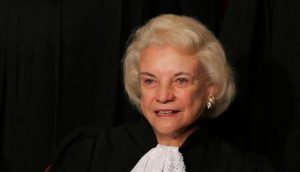The Supreme Court of India on Wednesday will hear pleas challenging the Centre’s decision to demonetize currency notes of Rs 500 & Rs 1,000. A five-judge bench headed by Justice Abdul Nazeer will hear the pleas tomorrow. Other members of the bench include Justices BR Gavai, AS Bopanna, V Ramasubramanian, and BV Nagarathna. The bench is supposed to fix the date of a detailed hearing. The matter was referred to the Constitution Bench on December 16, 2016, but the bench was yet to be constituted.
Also Read | United States announces more aid for floods-ravaged Pakistan
Who is Justice Abdul Nazeer?
Abdul Nazeer was born on January 5, 1958, in Beluvai near Moodbidri, Karnataka. He completed his B.Com degree at Mahaveera College, Moodbidri. He later studied law at SDM College, formerly known as Sri Dharmasthala Manjunatheshwara Law College, Mangalore. Nazeer enrolled as an Advocate in 1983 and he litigated for 20 years in the Karnataka High Court. In May 2003, he was appointed as an Additional Judge of the Karnataka High Court. One year later, he became a Permanent Judge. On February 12, 2017, Nazeer was elevated to the Supreme Court of India. He is the third judge to be directly elevated to the Supreme Court without serving as the Chief Justice of a High Court.
Also Read | Assam to Karnataka: Where are the second round of raids against the PFI is being conducted
Notable Judgements
He was a part of the five-judge bench that pronounced the historic 2019 Supreme Court verdict on the Ayodhya dispute. The Ramjanmbhoomi-Babri Masjid land dispute was heard by a bench headed by former CJI Ranjan Gogoi, SA Bobde, DY Chandrachud, Ashok Bhushan, and S Abdul Nazeer. On November 9, 2019, the Supreme Court ordered the construction of the Ram Temple on a 2.77-acre land and directed the government to provide 5-acre land for the construction of a mosque in Ayodhya, Uttar Pradesh.
Also Read | Why Japanese are protesting former PM Shinzo Abe’s state funeral
Apart from adjudicating the Ramjanmbhoomi-Babri Masjid land dispute, Justice Nazeer was also part of a five-member bench of the Supreme Court, which declared instant triple talaq unconstitutional in 2017. He was the only Muslim on the multi-faith bench. The bench comprising JS Khehar, former CJI Kurian Joseph, Rohinton Fali Nariman, Uday Umesh Lalit, and Abdul Nazeer held by a 3:2 majority that the practice of Triple Talaq is unconstitutional since it violates Articles 14 and 15 of the Constitution of India.
Also Read | Local police in eleven states raid PFI offices: Is a ban coming next?
Justice Nazeer and then Chief Justice Khehar dissented with the majority judgment upholding the constitutionality of Triple Talaq, based on the fact that it is permissible under Muslim Sharia Law.
Also Read | Ashok Gehlot out of Congress president race: How it happened
Justice Nazeer was also a member of the nine-judge Supreme Court bench that unanimously declared privacy as a fundamental right in Justice KS Puttaswamy v Union of India case. The bench held that privacy is integral to the right to life with dignity under Article 21 of the Constitution.







